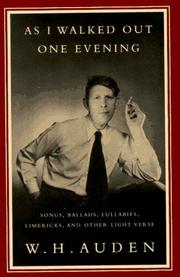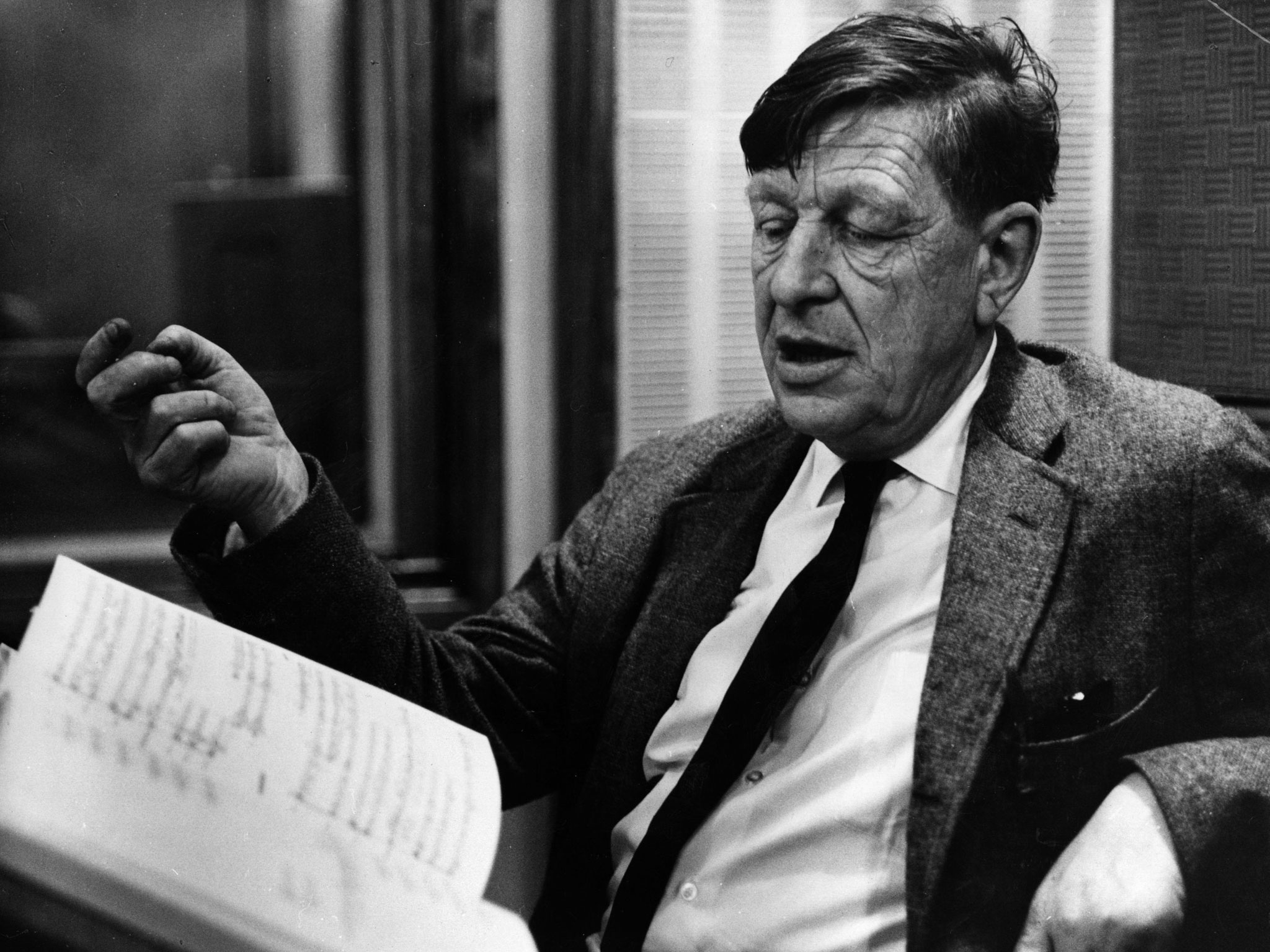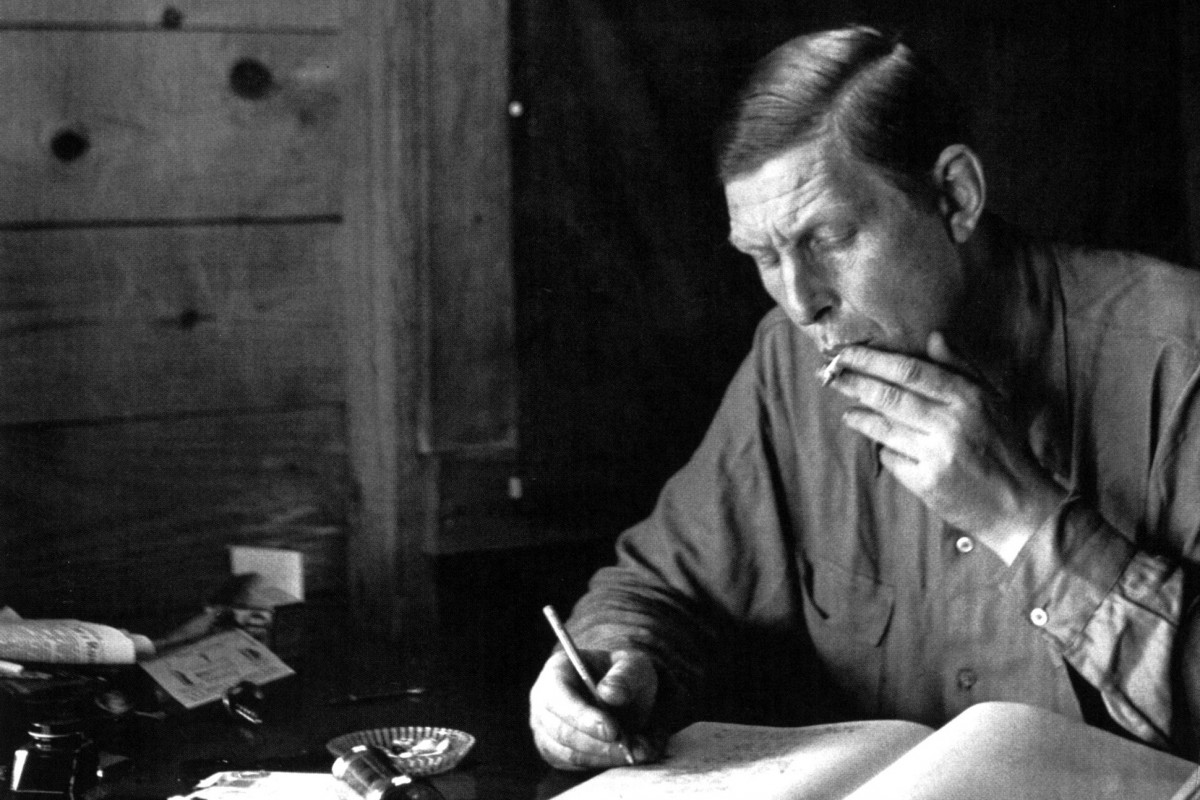Refugee Blues was written in 1939. The poem describes the condition of Jewish refugees during the period of Nazi Germany, with a particular emphasis on how they were discriminated against and antagonized.
About the Poet:
Wystan Hugh Auden was born in the year 1907 in York in England. He was an English- American poet applauded especially for his technical and stylistic achievements and his ability to write in any form of verse. He rose to fame with ‘Poems’ published in the year 1930. His most notable works include ‘Funeral Blues,’ ‘September 1, 1939’, ‘The Age of Anxiety’ and ‘For the Time Being.’ He won the Pulitzer Prize in Poetry in 1947 for The Age of Anxiety. A man both controversial and influential, Auden died in 1973 of natural causes.
Refugee Blues: Setting
The poem is set in some foreign country wherein the speaker and his companion took refuge. This is seen from the indifference of people and also from the sentence verse, ‘If we let them in, they take will steal our daily bread.’
Refugee Blues: Poetic Devices
Stanzas
There is a total of 12 stanzas, each having 3 lines in the poem.
Rhyme and Rhythm:
The rhyme scheme is AAB. The last words of the first two lines of each stanza rhyme with each other.
Imagery:
There is some imagery when the speaker speaks of the yew in the churchyard blossoming in spring each year.
Metaphor:
The thunder rumbling in the distance is a metaphor for the orders of Hitler, which read, ‘Kill all Jews.’
Repetition:
The last line of each of the 12 stanzas has a part of It repeated in itself. For example, ‘only ten feet away, my dear, only ten feet away.’ This repetition is effective in emphasizing the content of the individual stanzas.
Allusion:
There is no direct sentence stating the extent of damage done to the Jews, nor is there any verse saying the speaker speaks to a female companion. These are understood by the speaker’s words and descriptions.
Refugee Blues: Summary
The speaker of the poem says that the current city he is in has ten million souls. Some live in great mansions, while some live in poor holes. In neither dwelling, there is a place for him and his companion.
He once had a country that he thought was good and just. And it was still there, but he could not go back to it now. His and his companion’s passports expired, and they do not renew themselves like the yew which blossoms anew every spring.
When the council asked for their passports, he replied that they had expired. The consul then shouted that if they had no passports, they were officially dead. But they were still alive. They went in front of a committee to get their passports renewed. But they told them to come back next year. But where shall they go today? The speaker wondered.
The speaker went to a public meeting, and there he heard the open protestation against letting them into the country. The speaker imagined thunder rumbling. It was Hitler saying that all Jews must be put to death.
The speaker was a well-dressed poodle, a door opening for a cat, saw the fish swimming freely in the harbour, saw the birds singing happily in the wood; they were all having better lives than he and his companion, a couple of Jews.
The speaker dreamt of a huge building with thousands of rooms, and yet none had their name over it. He stood on a great plain and saw tens of thousands of soldiers marching. The speaker ends the poem by saying that they (the soldiers) were looking for them (the Jews).
In short, the speaker is saying that there is nowhere in this world, which has thousands of doors, which takes good care of pets, and which is home to free birds and fish, a heart, or a place for Jews.
Refugee Blues: Analysis
Throughout the poem, which has 12 stanzas, the last line of each stanza contains a repetition. This is to emphasize the content of the stanza, mostly on how the Jews were discriminated against and denied basic rights. The rhyme scheme AAB gives the poem a sort of sing-song characteristic. But there is no doubt that the matter portrayed in the poem is a serious one.
This seriousness kicks in the right from the first stanza, which says there is no place for a Jew among the rich or the poor. One can understand there is no place in either one of the categories, but when it is both, it is understood the situation is very dire. In the second stanza, ‘Look at the atlas, and you’ll find it there,’ implies that the place which the author called was for him now but a drawing on the map. It wasn’t really for him anymore because there was no safety there.
The dire situation of the Jews is still emphasized by the situation of their passports. There is some imagery here using a churchyard and a yew, but the point here is their passports expired, and the officials weren’t willing to give them new passports. They cannot live there, and yet they cannot leave. They were trapped, and as the consul said, ‘they were officially dead.’ To be dramatic, they were dead men walking.
Further, the people were against them, too, afraid that their coming would mean the native people’s share would go down. There was fear everywhere, in their old home, in their new refugee. There is no one they can turn to or trust.
Thunder is said to be rumbling in the sky. Thunder, here is the order of Hitler that all Jews be killed. The reference is apt as thunder comes before lightning. The lighting here would be the deadly strikes and bullets aimed at the Jews.
The speaker makes the discrimination more acute by portraying the treatment received; humans dressing up dogs and opening doors for cats while they shut them on their own. The fallen state of humans is shown next. While being the most intelligent species on the planet, they fight and cage and hunt their own. In contrast, fishes swim freely. The birds sing with ease. There are no politicians to bind them, no constraints. These stanzas show the dark side of humans and how far they fall.
In this whole vast world, there wasn’t a single door opening for them. In the last stanza, the speaker says that he was on a great plain in falling snow. He is out while snowing, implying that he has no other place to go. He had no shelter and hence had to roam in the open, constantly fearing being hunted by the soldiers deployed to kill them.
Throughout the poem, the speaker speaks to another human, presumably a female companion. He says ‘my dear’ repeatedly, showing that he, a Jew, is caring and compassionate. This emphasis on the human and loving nature of the speaker gets further sympathy from the readers for the Jews.
Refugee Blues: Central Idea
This poem gives a pretty accurate description of the situation of Jews during Hitler’s rule. It shows the people the plight of their fellow humans and how just because they were Jews, they were denied basic rights. It is an indirect appeal to show compassion by emphasizing that they (the Jews) were humans, too, the same as the readers.
Refugee Blues: Tone
The tone of the poem is melancholic. It is depressing and devastating. The dire plight of the Jews is presented starkly, making the readers uncomfortable, which is its (the poem’s) idea.
W H Auden shakes the reader’s heart by presenting the almost brutal situation of the Jewish refugees. Written in a time when the war and hunt were all real, Auden tries to get sympathy and compassion from the readers towards the Jews. He also shows the depth humans can fall to in their cruelty and how indifference was cruelty in itself. He shows the human nature of Jews and how they wish to be free and safe, like any other.
Updated by Anjali Roongta on 16th April 2023.
Some online learning platforms provide certifications, while others are designed to simply grow your skills in your personal and professional life. Including Masterclass and Coursera, here are our recommendations for the best online learning platforms you can sign up for today.
The 7 Best Online Learning Platforms of 2022
- Best Overall: Coursera
- Best for Niche Topics: Udemy
- Best for Creative Fields: Skillshare
- Best for Celebrity Lessons: MasterClass
- Best for STEM: EdX
- Best for Career Building: Udacity
- Best for Data Learning: Pluralsight









